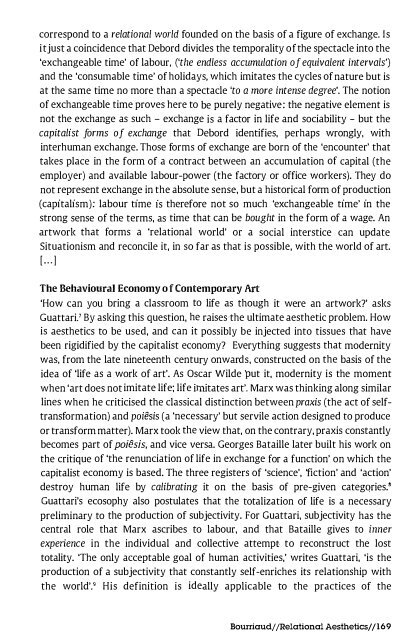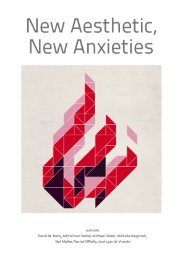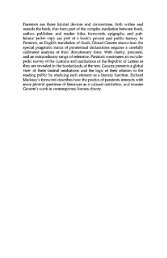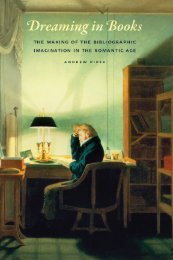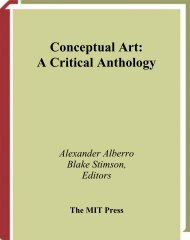Create successful ePaper yourself
Turn your PDF publications into a flip-book with our unique Google optimized e-Paper software.
correspond to a relational world founded on the basis of a figure of exchange. Is<br />
it just a coincidence that Debord divicles the temporality of the spectacle into the<br />
'exchangeable time' of labour, ('the endless accumulation of equivalent intervals')<br />
and the 'consumable time' of holidays, which imitates the cycles of nature but is<br />
at the same time no more than a spectacle 'to a more intense degree'. The notion<br />
of exchangeable time proves here to be purely negative: the negative element is<br />
not the exchange as such - exchange is a factor in life and sociability - but the<br />
capitalist forms of exchange that Debord identifies, perhaps wrongly, with<br />
interhuman exchange. Those forms of exchange are born of the 'encounter' that<br />
takes place in the form of a contract between an accumulation of capital (the<br />
employer) and available labour-power (the factory or office workers). They do<br />
not represent exchange in the absolute sense, but a historical form of production<br />
(capitalism): labour time is therefore not so much 'exchangeable time' in the<br />
strong sense of the terms, as time that can be bought in the form of a wage. An<br />
artwork that forms a 'relational world' or a social interstice can update<br />
Situationism and reconcile it, in so far as that is possible, with the world of art.<br />
[ . . ·1<br />
The Behavioural Economy of Contemporary Art<br />
'How can you bring a classroom to life as though it were an artwork?' asks<br />
Guattari.' By asking this question, he raises the ultimate aesthetic problem. How<br />
is aesthetics to be used, and can it possibly be injected into tissues that have<br />
been rigidified by the capitalist economy? Everything suggests that modernity<br />
was, from the late nineteenth century onwards, constructed on the basis of the<br />
idea of 'life as a work of art'. As Oscar Wilde 'put it, moderniry is the moment<br />
when 'art does not imitate life; life imitates art'. Marx was thinking along similar<br />
lines when he criticised the classical distinction between praxis (the act of selftransformation)<br />
and poiesis (a 'necessary' but servile action designed to produce<br />
or transform matter). Marx took the view that, on the contrary, praxis constantly<br />
becomes part of poiesis, and vice versa. Georges Bataille later built his work on<br />
the critique of 'the renunciation of life in exchange for a function' on which the<br />
capitalist economy is based. The three registers of 'science', 'fiction' and 'action'<br />
destroy human life by calibrating it on the basis of pre-given categories."<br />
Guattari's ecosophy also postulates that the totalization of life is a necessary<br />
preliminary to the production of subjectivity. For Guattari, subjectivity has the<br />
central role that Marx ascribes to labour, and that Bataille gives to inner<br />
expenence in the individual and collective attempt to reconstruct the lost<br />
totality. 'The only acceptable goal of human activities,' writes Guattari, 'is the<br />
production of a subjectivity that constantly self-enriches its relationship with<br />
the world'." His definition is ideally applicable to the practices of the<br />
Bourriaudj jRelational Aesthetics/ /169


